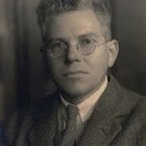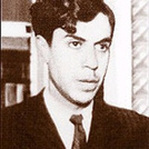|
Vivaldi's first Opera, Ottone in Villa, was premiered on 17th May 1713, in Vicenza, Italy. An adaptation of a libretto for an earlier opera, Messalina, Ottone in Villa transforms Emperor Claudius into Emperor Otho (Ottone) and Messalina into Cleonilla, a non-historical character.
Ottone, hopelessly in love with Cleonilla, fails to notice that she is acting like a hussy, courting not one, but two other men, Caio and Ostilio, even though his faithful servant Decio tries desperately to warn him on more than one occasion. Caio, Cleonilla's primary plaything, is unceremoniously dumped for Ostilio, who is more beautiful that Caio. The reason that Ostilio is more 'beautiful' is that Ostilio is, in reality, a woman! More than that, Ostilio is none other than Tullia, the woman Caio dumped in order to cuckold Ottone. Tullia planed to kill or discredit Cleonilla, and to extract a confession of guilt and forgiveness from Caio, but Caio is unrepentant, and Tullia spends much time vascillating between her need for vengence and her love for Caio. In a wonderful scene, where she hides, listening to Caio's lament, she mocks him from afar, in a duet which is interestingly orchestrated - main orchestra plus two violins and two recorders, all doing different things, while Caio is left to wonder who this strange disembodied voice is that mocks him, and wonders if he is loosing his grip on sanity. In a final scene, where Ottone and Decio walk in to find Cleonilla in an amourous embrace with Ostilio/Tullia, and Caio in a murderous rage at his 'rival', Ostilio reveals her true identity as Tullia, clears Cleonilla of all culpability, and claims that Caio is the real villain. Cleonilla, thinking quickly on her feet, claims to Ottone that she only embraced Ostilio/Tullia because she was aware of her true identity, and was trying to help reunite Tullia and Caio. Ottone, still madly and foolishly in love, believes her, and asks her forgiveness for thinking badly of her. He also orders Caio to marry Tullia, which of satisfies Tullia no end. Caio, seeing he writing on the wall, asks forgiveness of Tullia, which she readily gives. And Cleonilla, in an aside otthe audience, promises to be a better person in future. Confused? Well, this intrigue-laden plot throws up some real musical gems. The performance at the Barbican Centre in London was as sparce visually as the orchestration. But this complemented, rather than detracted from, the music. The cast was: Ottone: Sonia Prina (Contralto) Caio: Juila Lezhneva (Soprano) Cleonilla: Veronica Cangemi (Soprano) Ostilio/Tullia: Roberta Invernizzi (Soprano) Decio: Topi Lehtipuu (Tenor) It was performed in concert style, with two singers, Invernizzi and Lezhneva, to the left of the conductor, and the rest to his right. The orchestra was Il Giardino Armonico, and the conductor Giovanni Antonini, both superb, especially first violinist Stefano Barneschi, as he played the solo virtuoso violin part Vivaldi had written for himself. First up, let's take a look at Sonia Prina's interpretation of Ottone. Originally written for Contralto Diana Vico, the part of Ottone hangs low in tessitura, and is full of wonderful coloratura. Prina takes to the role with ease, and fires of the rapid passages with skill and precision. Her rich voice gives her the clout to perform this 'trouser' role with authenticity, yet without sacrificing ease of movement. Her Ottone is painfully credulous, as the characterisation demands, yet the sense of power and authority never leave her. She raised a few laughs too, especially in her confusion about Ostilio/Tullia. An excellent performance, though I for one wished she had more to do. Next, Veronica Cangemi as Cleonilla. I was slightly disappointed as her voice was much smaller than I had expected. She was in fact louder and more expressive during the Recitative parts than in the arias where, in a couple of places, I had difficulty hearing her. Given I was only eight rows away from the stage, I would expect a little more volume. Her characterisation was solid, if uninspired, and perhaps slightly less self assured and carefree than I would have expected for a woman juggling three suitors. Her technical performance was spot on, however, and her comedic interactions with the other performers in Act 3 were more in character. Juila Lezhneva stole the night for me. I was amazed by the power, skill and depth of character she gave to the role of Caio. It was originally written for a Soprano Castrato, and this was reflected in the difficulty of some of the fast passages, as well as in the longer phrases. Born in 1989, Lezhneva displayed supprising maturity in the role. The Act 1 aria Gelosia (Jealousy) really showed her skill, and she captivated the audience from the onset. Her coloratura was flawless, and her characterisation perfect. I am looking forward to hearing more from this up-and-coming young Russian. Playing two characters of different genders in the same performance is not always easy, but Roberta Invernizzi gave real depth to both personalities, as well as managing to merge the vengeful traits of Tullia with the sweetness of Ostilio as the drama progressed. Her comic movements and facial expressions added to the portrayal, especially when showing her disdain for Caio while Lezhneva performed her arias. The highlight for me from Invernizzi was her gentle, caustic mocking of Caio during the duet 'L'ombre l'aure, e ancora il rio', where Invernizzi removed to the back of the stage while Lezhneva lamented her character's sorrow. Click here for a sneeky video taken by one of the audience members on the night. It is of Invernizzi singing the aria 'Misero spirto mio'. The other surprise of the evening was the Tenor Topi Lehtipuu. Born in Australia, studied in Helsinki, and now resident in Paris, Lehtipuu came to Opera via a progressive rock-band, "inspired by music ranging from Gregorian Chant to heavy metal". His characterisation of Decio was excellent, and he made the most of the comic moments alloted to the role. His high, supple Tenor effortlessly navigated the complex coloratura, and his interplay with Prina was perfectly co-ordinated. He smashed onto the Opera scene playing the part of Tamino in Die Zauberflote, and given his performance here, I can see why he was an instant hit. This is another performer I look forward to hearing more from. All in all, Ottone in Villa was a definate hit. The soloists and the orchestra will be reuniting to take their roles once again in the recording studio. It will be a recording that I will definately purchase.
0 Comments
Your comment will be posted after it is approved.
Leave a Reply. |
Categories
All
Archives
September 2014
|
MOST VIEWED POSTS
© James Edward Hughes 2013
 RSS Feed
RSS Feed





